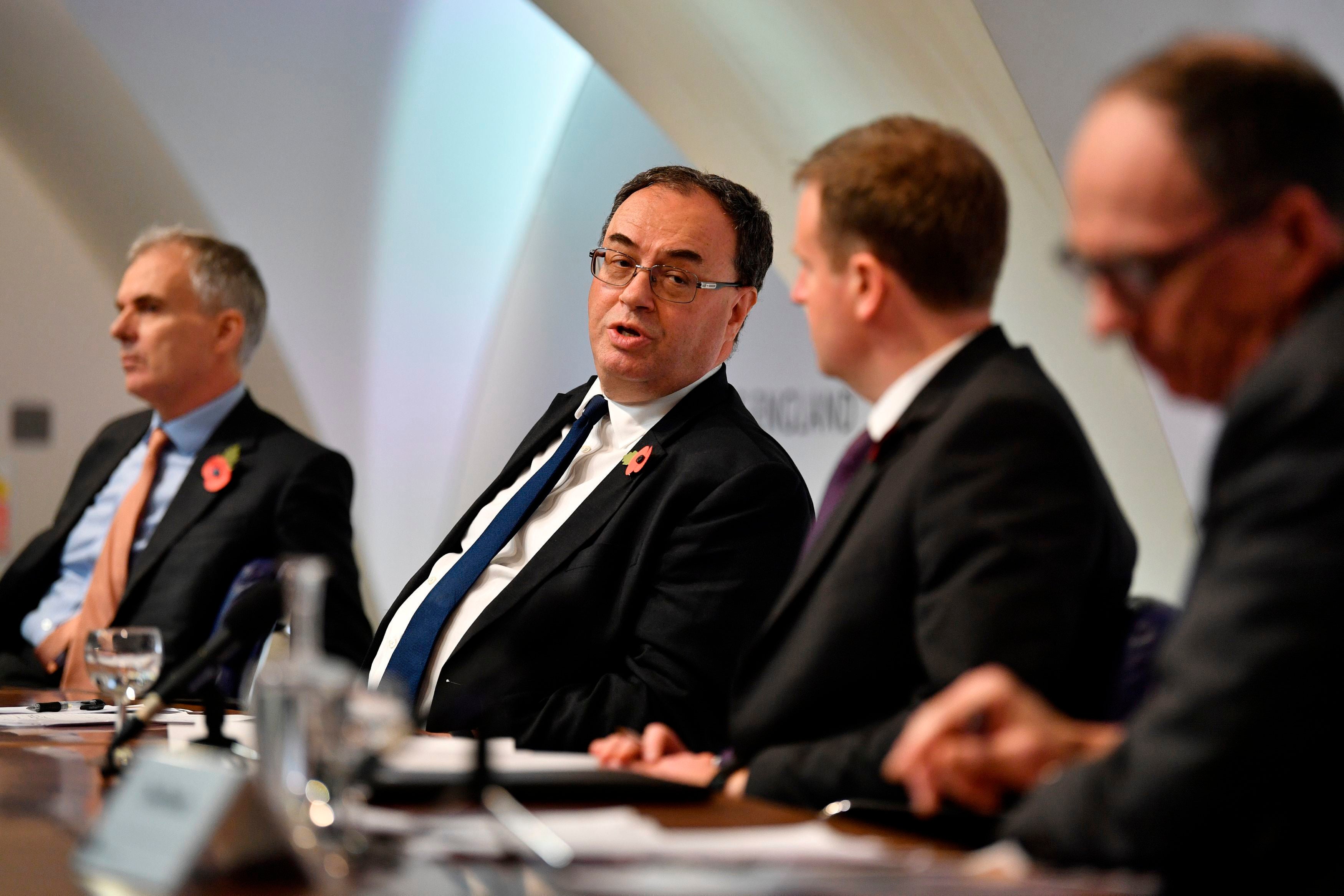Bank of England likely to raise key rate to combat inflation
The Bank of England is likely to raise its key interest rate for the third time since December

Your support helps us to tell the story
From reproductive rights to climate change to Big Tech, The Independent is on the ground when the story is developing. Whether it's investigating the financials of Elon Musk's pro-Trump PAC or producing our latest documentary, 'The A Word', which shines a light on the American women fighting for reproductive rights, we know how important it is to parse out the facts from the messaging.
At such a critical moment in US history, we need reporters on the ground. Your donation allows us to keep sending journalists to speak to both sides of the story.
The Independent is trusted by Americans across the entire political spectrum. And unlike many other quality news outlets, we choose not to lock Americans out of our reporting and analysis with paywalls. We believe quality journalism should be available to everyone, paid for by those who can afford it.
Your support makes all the difference.The Bank of England on Thursday is likely to raise its key interest rate for the third time since December as it pushes ahead faster than other central banks in combating a global wave of inflation fueled by soaring energy prices.
Economists expect the Bank of England to boost its key rate to 0.75% after Russia's war in Ukraine pushed oil prices to a 13-year high earlier this month. The U.S. Federal Reserve raised its benchmark short-term rate to 0.25% on Wednesday to tame the worst inflation since the early 1980s. The Fed had left it at close to zero since the coronavirus pandemic struck two years ago.
The European Central Bank left its rates unchanged last week but announced an early exit from its economic stimulus efforts in a bid to combat record inflation in the 19 countries that use the euro.
The Bank of England began raising rates in December amid concern about rising consumer prices as the world began to emerge from the pandemic, increasing demand for energy and raw materials needed by industry.
Even before Russia’s invasion of Ukraine, the Bank of England expected consumer price inflation to peak at around 7.25% in April, more than three times its target of 2%.
The Resolution Foundation, a think tank focused on helping low-income families, said last week that inflation may now peak at more than 8.4%, which would push inflation to its highest level since 1982.
Central banks in other countries may soon catch up to the Bank of England. The Federal Reserve signaled that it may raise rates six more times this year.